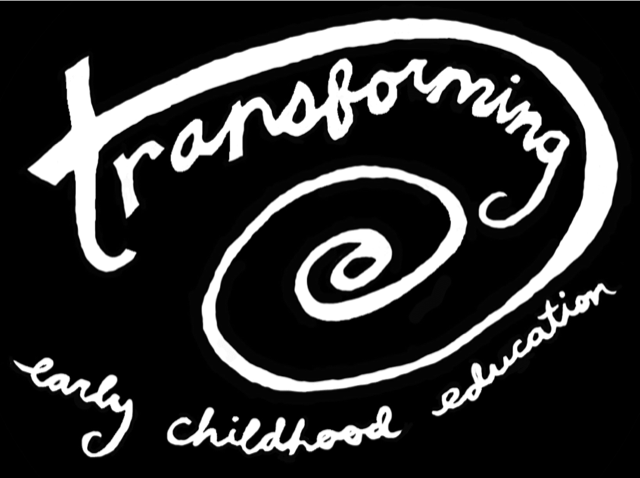Let’s Transform Early Childhood Education!

Types of Play
Types of Play

Everybody is a Learner
Everybody is a Learner

If We Truly Cherished Children
If We Truly Cherished Children

The Term You Are Looking For is Dysregulation
The Term You Are Looking For is Dysregulation
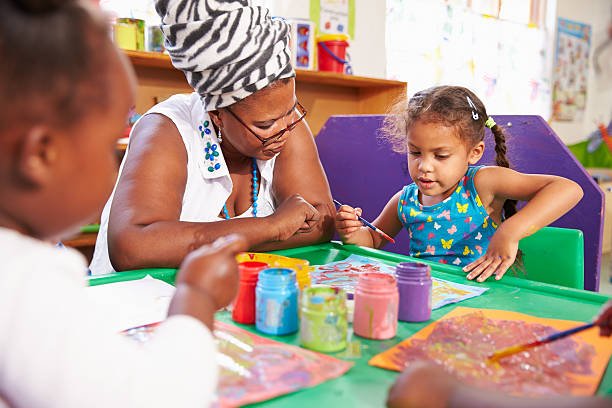
Listening Ears
Listening Ears

Present vs Busy
Present vs Busy

The Best and the Worst
The Best and the Worst

Discipline vs Punishment
Discipline vs Punishment
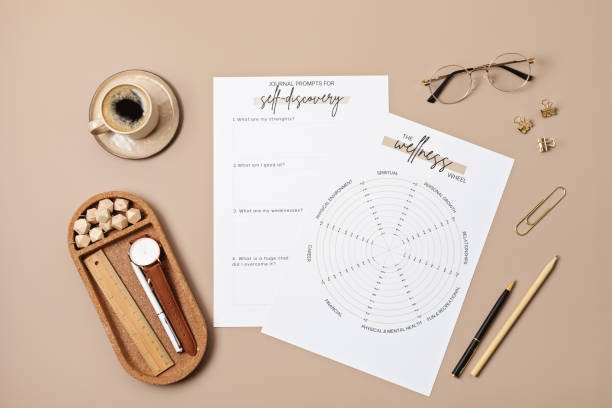
Wellness Wheel
Wellness Wheel

Letting Go….
Letting Go….

Roses and Thorns
Roses and Thorns

Attacks on DAP
Attacks on DAP

Mud Season!
Normalized isn’t Normal

Normalized isn’t Normal
Normalized isn’t Normal

Serve and Return
Serve and Return
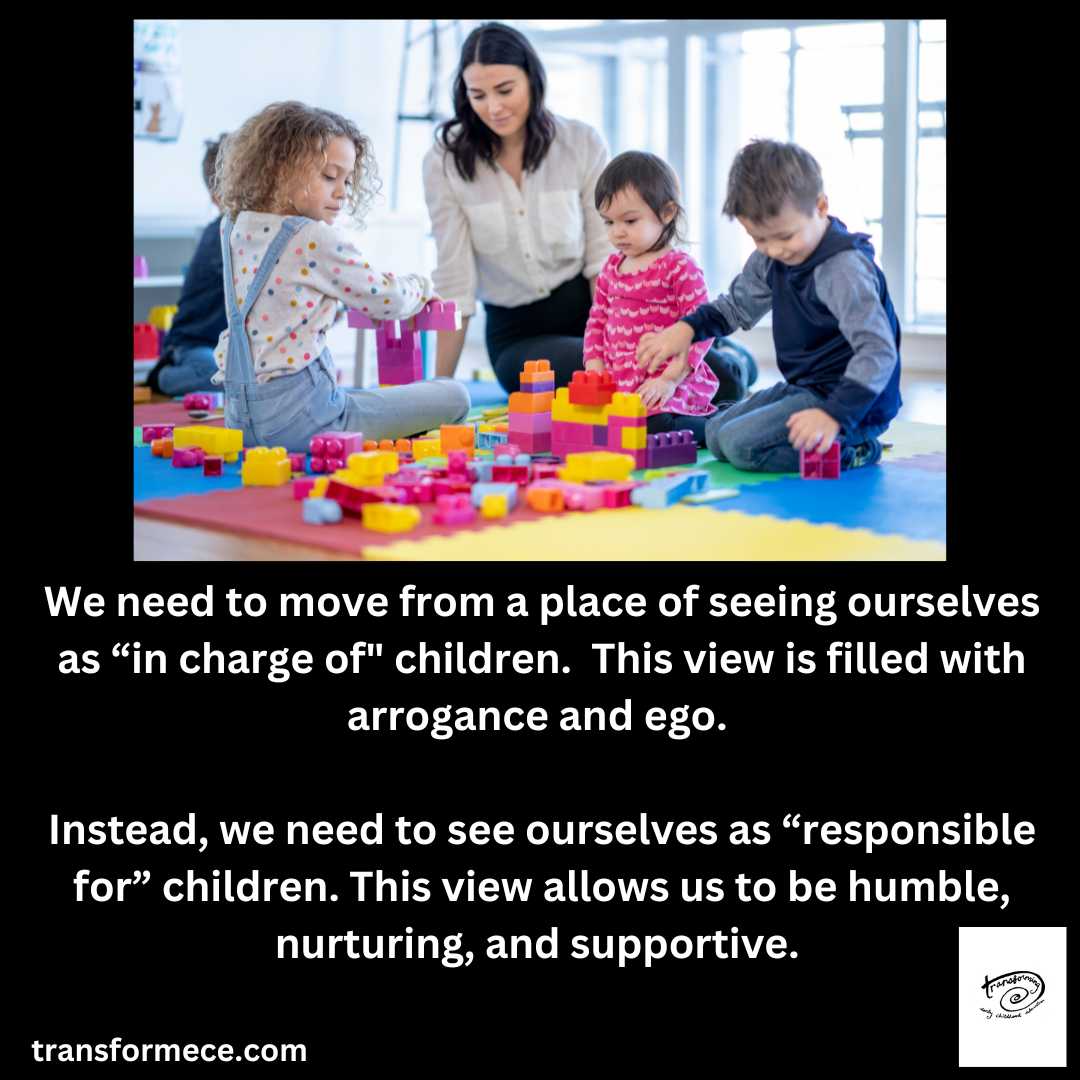
We Are Not In Charge of Children!
As we move into the new year, we must reflect upon our relationships with young children. If we want to create secure attachments and meaningful connections, we need to shift our lens from “in charge of” to “responsible for.”
This view enables us to see a child’s behaviors as needs to be met through guidance and support instead of a child as defiant and in need of punishment. When we know better, we should do better.
Let’s do better in 2023!

Children are NOT Sponges
I regularly ask early childhood professionals and parents about their image of the children in their care. How do they view the children? What words would they use to describe young children? Before the caregivers dig into the reflection process, I ask them to think outside the realm of children being "sponges" or "vessels." This request is the first piece in the process where I get lots of questioning looks.
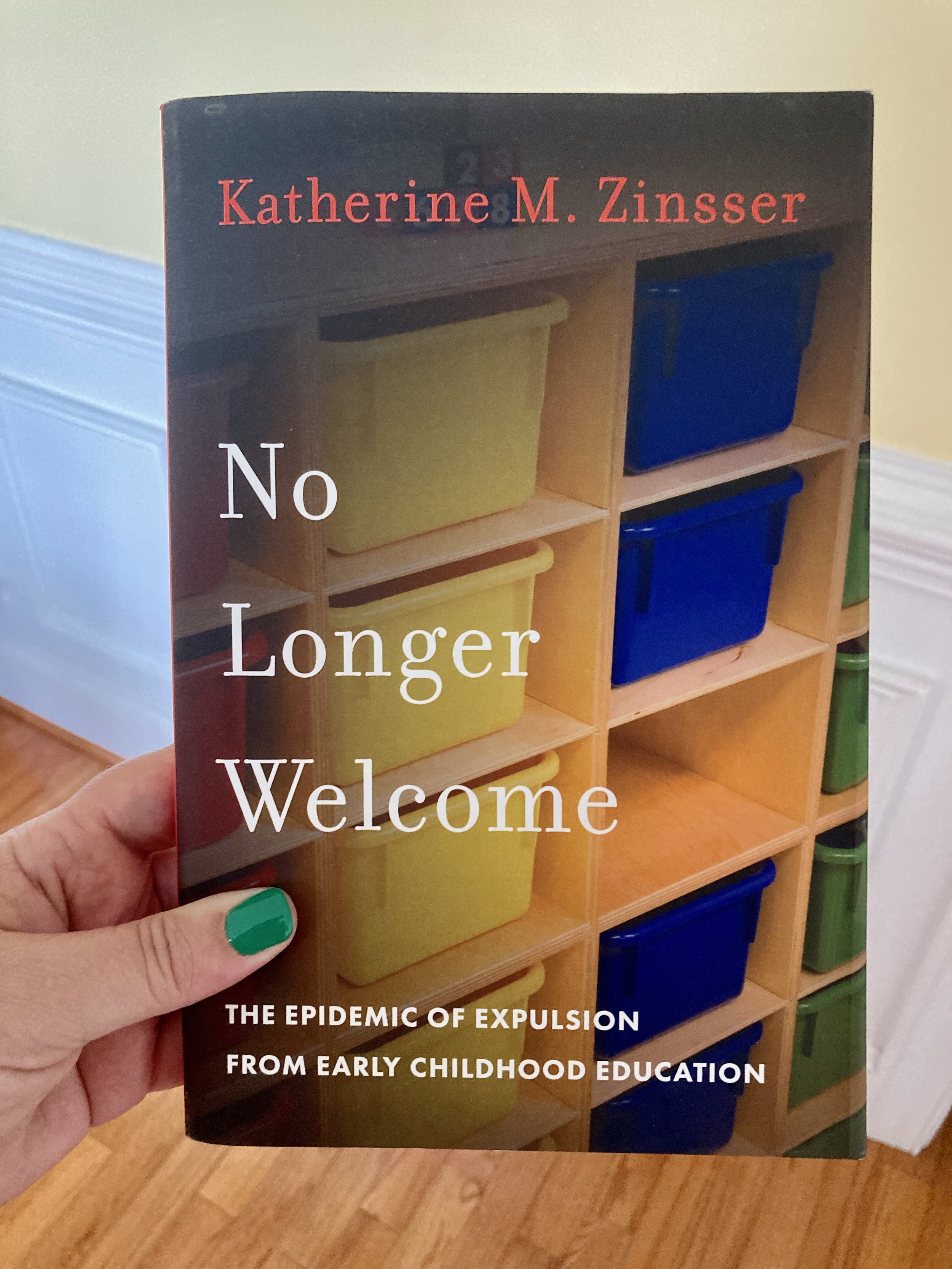
No Longer Welcome
One sentiment I share so often with teachers is reinforced in this book: It's not about a child's behavior, it is about an adult's decisions. The majority of behaviors that we (adults) find challenging are DEVELOPMENTALLY APPROPRIATE. We are challenged by our inability to understand the child, their behavior, and how we can support them.

STOP Taking Behaviors So Personally
Adults often become personally affected and offended when a child is having a behavior struggle. They see the child as giving them (the adult) a hard time versus (the child) having a hard time. We will never be able to truly support young children if we continue to see every behavior as a personal attack.
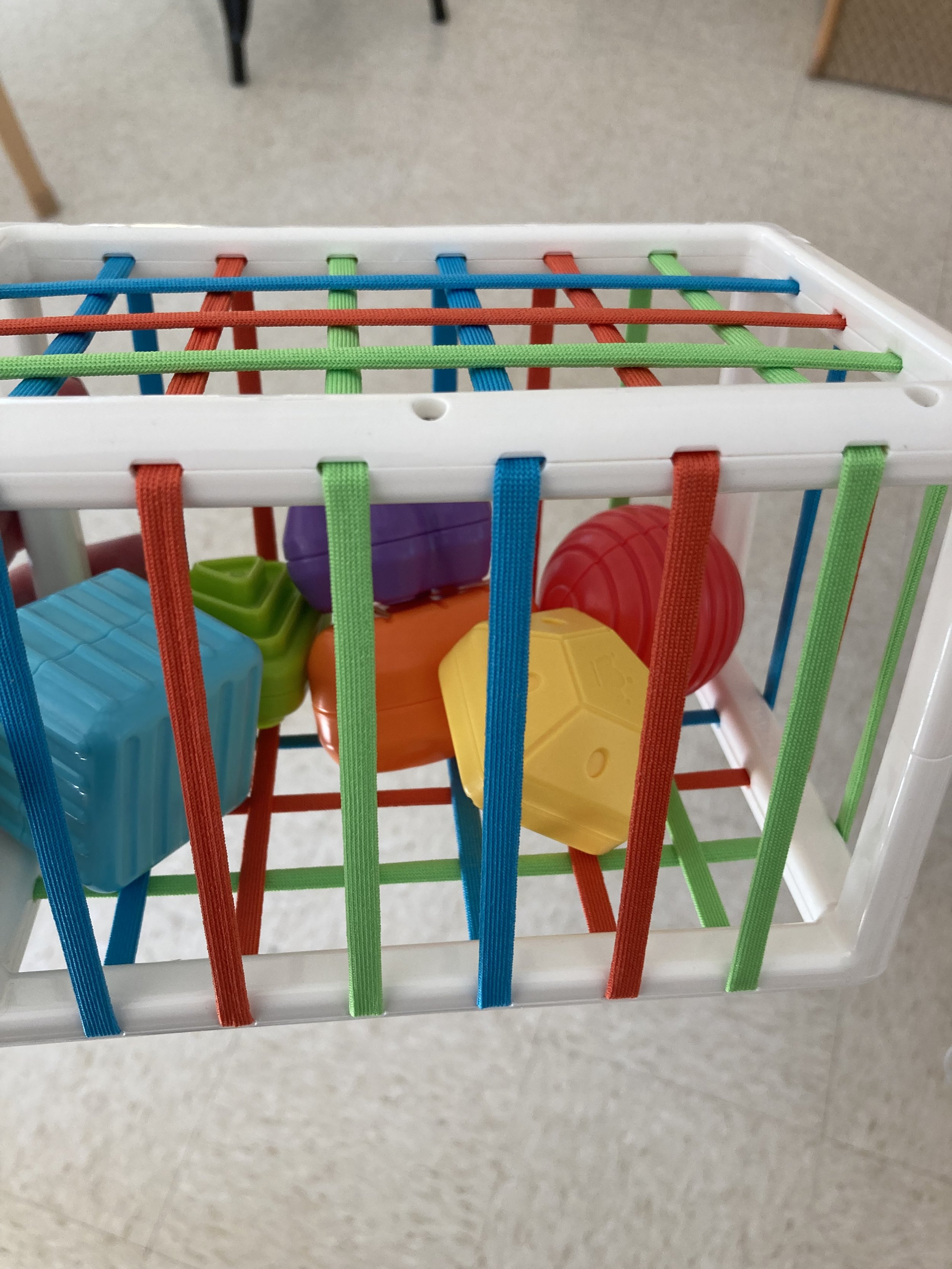
Stimulating Curiosity
In many toddler classrooms, you will find toys that are brightly colored and make lots of noise. These materials provide very little space for the child to use their imagination. This is not the case in a Montessori classroom. All of the materials provided to the children have a purpose. They are challenging, allowing children to use their imagination and stimulate curiosity.

